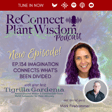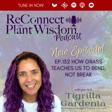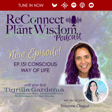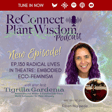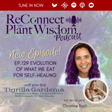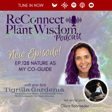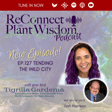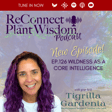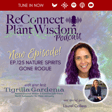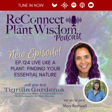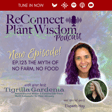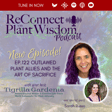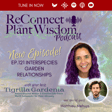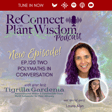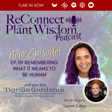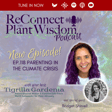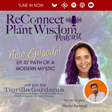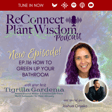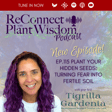
Ep.133 Emotional Liberation with Cannabis with Becca Williams
Let's remember how to feel again.
In this soul-expanding conversation with Becca Williams, emotions therapist and founder of Emotional Liberation, we explore how working with plant teachers like cannabis and psilocybin can help you build true emotional resilience.
Together, we dive into the fine line between USING plants for escape and working WITH THEM as conscious allies — and how emotional healing is really about strengthening your nervous system to move through life’s waves with grace.
Whether you’ve done the inner work and now crave deeper embodiment, or you’re learning to trust your emotions again, this episode will remind you: Nature doesn’t numb — Nature teaches you how to feel safely.
In this episode about Emotional Liberation with Cannabis, you’ll learn:
🌿 What emotional liberation truly means and how to cultivate it daily
🌿 The difference between escapism and conscious collaboration with plant medicine
🌿 How cannabis can support nervous system resilience and emotional release
🌿 Why the root of trauma healing lies in rebuilding your ecosystem — not just your mindset
✨ Next Step ✨
Bring these insights into LIVED PRACTICE inside the Naturally Conscious Community (NCC). 🌿
Let’s turn reflection into integration — and make it real in your ecosystem. JOIN HERE FOR FREE
✨ Resources
🌱 Expanded Show Notes
🌱 Learn More about Becca Williams
🌱 Make it REAL in your ecosystem. TRY NCC HERE FOR FREE
👤 Guest Spotlight 👤
Becca Williams is an Emotions Therapist and creator of Emotional Liberation, a pioneering approach to healing that blends sacred teachings, meditation, breathwork, and expressive movement to help people process and release trauma.
With a background as a Registered Dietitian, clinical nutritionist, and former NPR journalist, Becca brings both science and spirit into her work. She supports individuals in understanding emotions as an intuitive guidance system — using plant allies like cannabis and psilocybin to strengthen the nervous system and access true emotional resilience.
🔗 Connect & Explore More
🌿 Website
🌿 Contact
🌿 Shop Eco-Conscious Partner: The Shift Network
Socials
📸 Instagram
📘 Facebook
💼 LinkedIn
▶️ YouTube
🎵 Credits
Opening + Closing music by @Cyberinga and Poinsettia

